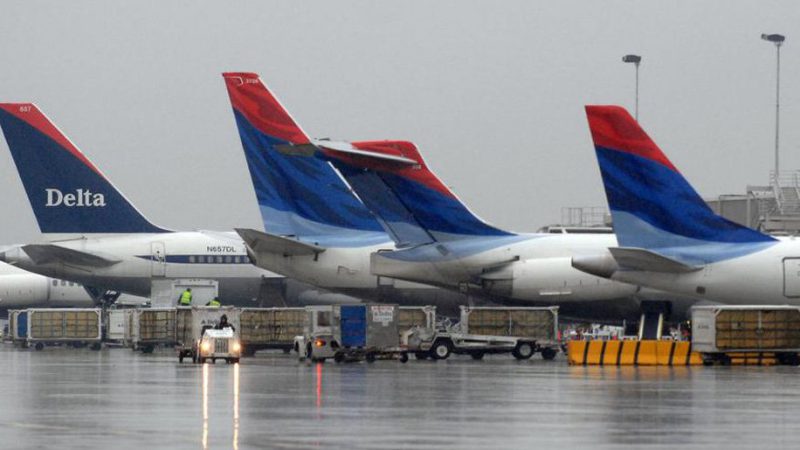Delta Speeds Retirement of 777s
The widebody fleet of 18 aircraft flies into the sunset by the end of 2020, joining the MD-88 and MD-90 which end service in June

The widebody fleet of 18 aircraft flies into the sunset by the end of 2020, joining the MD-88 and MD-90 which end service in June
May 14, 2020

As part of Delta Air Lines’ strategy to accelerate simplifying and modernizing its fleet in the wake of the COVID-19 pandemic, the airline says it plans to retire its 18 widebody Boeing 777s by the end of 2020. Last month, the carrier announced plans to move up the retirement of its MD-88 and MD-90 fleets to June.
The first Boeing 777-200 entered Delta’s roster in 1999, eventually to growing to a fleet of 18 aircraft, including 10 of the long-range 777-200LR, which arrived in 2008. Delta will continue its long-haul services aboard next generation Airbus A350-900s, which burn 21 percent less fuel per seat than the 777s they will replace.
“We’re making strategic, cost-effective changes to our fleet to respond to the impact of the COVID-19 pandemic while also ensuring Delta is well-positioned for the recovery on the backside of the crisis,” said Gil West, Delta’s chief operating officer. “The 777 has been a reliable part of Delta’s success since it joined the fleet in 1999 and because of its unique operating characteristics, opened new non-stop, ultra-long-haul markets that only it could fly at that time.”
Delta joins other carriers, including American Airlines, in announcing accelerated fleet rationalization as part of the industry’s post-COVID-19 recovery.
“More than 2,500 aircraft with 20-plus years of service were in active service prior to the crisis,” noted David Calhoun, president and CEO of Boeing, during that company’s first quarter earnings call. The coronavirus pandemic will prompt many airlines to accelerate aircraft replacement, with “focus on the oldest and least efficient to retire,” he said.
Delta says it will announce more specific details on the timing of the 777’s retirement at a later date.
| Cookie | Duration | Description |
|---|---|---|
| cookielawinfo-checkbox-analytics | 11 months | This cookie is set by GDPR Cookie Consent plugin. The cookie is used to store the user consent for the cookies in the category "Analytics". |
| cookielawinfo-checkbox-functional | 11 months | The cookie is set by GDPR cookie consent to record the user consent for the cookies in the category "Functional". |
| cookielawinfo-checkbox-necessary | 11 months | This cookie is set by GDPR Cookie Consent plugin. The cookies is used to store the user consent for the cookies in the category "Necessary". |
| cookielawinfo-checkbox-others | 11 months | This cookie is set by GDPR Cookie Consent plugin. The cookie is used to store the user consent for the cookies in the category "Other. |
| cookielawinfo-checkbox-performance | 11 months | This cookie is set by GDPR Cookie Consent plugin. The cookie is used to store the user consent for the cookies in the category "Performance". |
| viewed_cookie_policy | 11 months | The cookie is set by the GDPR Cookie Consent plugin and is used to store whether or not user has consented to the use of cookies. It does not store any personal data. |